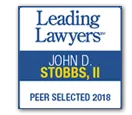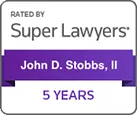Meth Drug Crimes
Methamphetamine charges in Illinois are extremely serious, with penalties that can drastically impact your life. As an attorney, I’ve seen the complexities these cases present, from possession to manufacturing and distribution. Understanding the intricate legal landscape surrounding meth offenses is crucial. My approach involves a deep analysis of your case, from examining how the meth was discovered to challenging evidence and procedural errors. It’s about protecting your rights and navigating through a legal system that takes a tough stance on meth-related offenses.
Common Misconceptions about Meth Drug Crimes
A common misconception about methamphetamine charges is that they always lead to the maximum legal penalties. In reality, the severity of penalties can vary based on factors like the amount of meth involved and the defendant’s criminal history. Another misunderstanding is the belief that charges are only for manufacturing or large-scale distribution. However, even possession of small amounts of meth can result in serious charges. It’s also often thought that meth charges are impossible to defend against, but various defense strategies can be employed in these cases.
Potential Consequences of Meth Crime Charges
In Illinois, methamphetamine possession is regulated under Section 60 of the Methamphetamine Control and Community Protection Act (720 ILCS 646/60). This law categorizes possession of methamphetamine as unlawful and sets forth penalties based on the amount possessed. Penalties range from a Class 3 felony for possession of less than 5 grams, up to a Class X felony for 900 grams or more. The severity of the felony class increases with the amount of methamphetamine involved, with corresponding increases in potential imprisonment time and fines. For more information, you can view the Illinois Compiled Statutes.
What should I do if I’m charged with a meth drug crime?
If you find yourself charged with a methamphetamine-related offense in Illinois, it’s imperative to seek immediate legal counsel. The complexity of these cases demands a strategic approach. Refrain from speaking to law enforcement without your attorney present, as anything you say can be used against you. Secure experienced legal representation to assess the evidence, challenge any procedural errors, and build a robust defense tailored to your case. Every detail matters. It’s possible to navigate these charges and work toward the best possible outcome with the right legal guidance.




